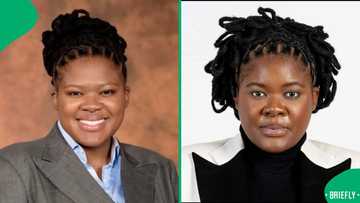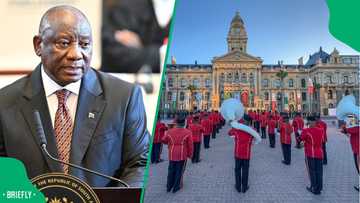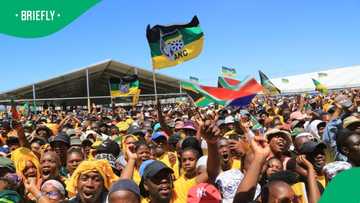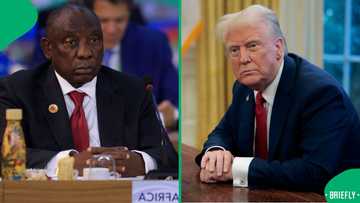SONA 2025: Energy Security, Employment, Cooperation and Improved Infrastructure, Promises Ramaphosa
- President Cyril Ramaphosa delivered the 2025 State of the Nation Address (SONA) at the Cape Town City Hall
- Ramaphosa took the nation through the challenges and achievements of his administration since his last address
- The president noted the work of the Government of National Unity (GNU) following the May 29 general elections
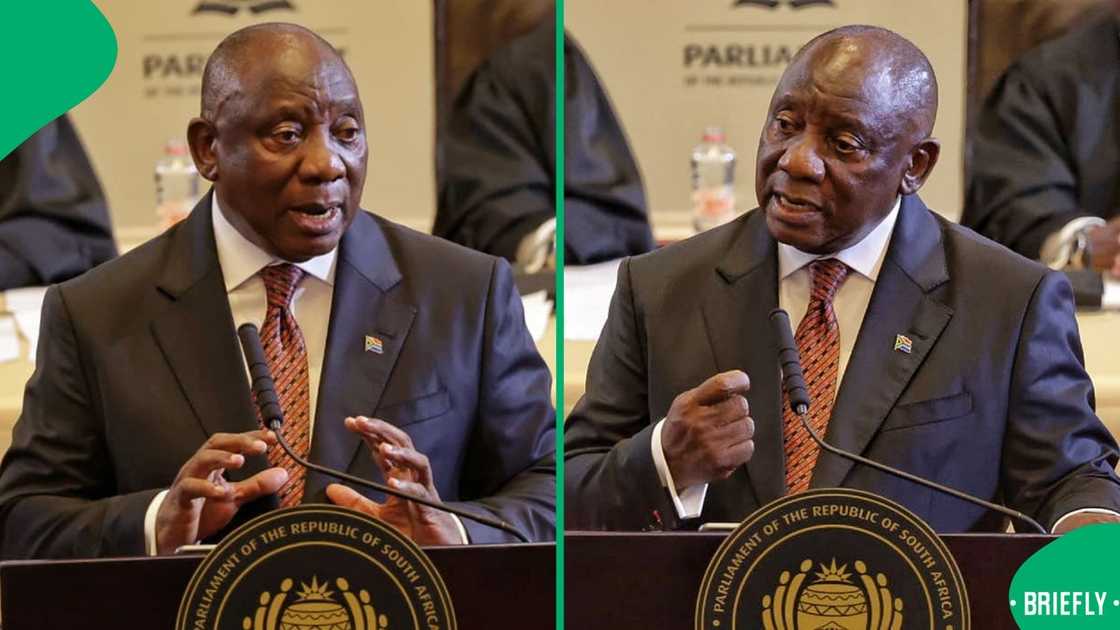
Source: Twitter
SOUTH AFRICA — The country listened with bated breath as President Cyril Ramaphosa gave the State of the Nation Address (SONA) before a joint sitting of the two houses of Parliament in Cape Town on Thursday, 6 February 2025.
The address, whose theme was "A nation that works, for all," was the first of the seventh administration and highlighted South Africa's political, social, and economic situation under a multi-party government.
Ramaphosa delivers 2025 SONA
An assured Ramaphosa set out the government’s key policy objectives for the year ahead during a speech with minimal disruptions.
PAY ATTENTION: stay informed and follow us on Google News!
He noted the challenges his administration faced and outlined interventions to unlock dynamic solutions to pressing challenges.
The president also highlighted what had been achieved since his 2024 address, including reflecting on the progress in implementing the Economic Reconstruction and Recovery Plan (ERRP).
He also highlighted the gains of the Presidential eThekwini Working Group, established in April 2024.
In opening his address, Ramaphosa honoured the 14 South African National Defence Force (SANDF) United Nations (UN) peacekeeping troops who died as Rwanda Defence Force (RDF) militia launched an attack on the eastern Democratic Republic of Congo (DRC) city of Goma a week ago.
Regarding the country's economic health, he noted intensifying competition over trade, technology and influence in global institutions.
In doing so, Ramaphosa amplified SA's resilience, saying the country, as a developing economy, needed to navigate the challenges brought on by an ever-changing world. In a notable moment, he also took a swipe at his US counterpart, Donald Trump.
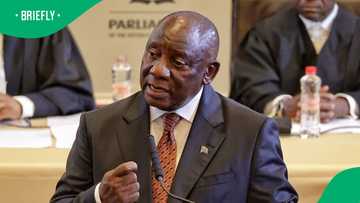
Read also
SONA 2025: UNISA political analyst says creating employment is not the job of the government
"There are global fundamental shifts that impact human life in every way underway. From climate change's growing impact to rapid advances in artificial intelligence (AI), geopolitical tensions and devastating conflicts.
"But we are not fazed; we will not be deterred. We're an unwavering people, who will not be bullied. We will stand as a united nation."
The latter comes on the back of Trump's pronouncement to cut all funding from SA due to the country's "racist laws" that have seen Ramaphosa passing a law to "confiscate land" and "treat certain classes of people badly".
He noted the formation of a National Unity Government (GNU) following the May 29 general elections.
"We've formed a GNU — guided by the people's desires displayed at the 2024 polls — amplifying our culture of cooperation.
"As political parties, we've put our differences aside and agreed to work together for all South Africans' good."
"We [recently] adopted the Medium Term Development Plan, which outlines an ambitious, targeted programme for the next five years.
"The actions therein will advance three strategic priorities to drive inclusive growth and job creation, reduce poverty and tackle the high cost of living [and] build a capable, ethical and developmental state."
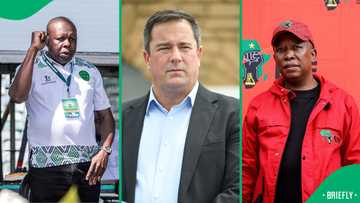
Read also
SONA 2025: EFF and MK Party unhappy with Cyril Ramaphosa's speech, DA pleased with some aspects
He said an urgent task was to grow the economy to create jobs, reduce poverty and improve citizens' lives.
To achieve these objectives, the government sought to strengthen the role of the Public Service Commission in appointing key positions to direct the state's affairs in state-owned entities (SOEs), among others.
This is as municipalities in the country crumble under the weight of corruption, maladministration and unimpressive audit reports.
The 2022/2023 municipal audit report, which Auditor General Tsakani Maluleke presented to Parliament in August 2024, showed that only 34 out of 257 municipalities received a clean audit — a decrease from the previous year.
"We'll introduce a graduate recruitment scheme to attract the best and the brightest into the public service," said Ramaphosa.
"In many cities and towns across SA, roads are not maintained, water and electricity supply is disrupted, refuse is not collected and sewage runs in the streets. This has happened partly because many municipalities lack the required technical skills and resources to [provide efficient service delivery].
"We'll review municipalities' funding model, as many don't have a viable and sustainable revenue base. We'll expand our support to municipalities requiring assistance, using lessons from the Presidential eThekwini Working Group."
Read the rest of the address here.
The government established the Working Group to support and accelerate the eThekwini Municipality's efforts to improve service delivery and business confidence, and reposition eThekwini as an investment and tourism hotspot.
"We're seeing significant progress in eThekwini as we implement the district development model, which enables all key role players, i.e., in government, business, labour and community groups, to work together.
"As we work to reform the public service and build the state's capability, we will harness technology to transform the way that government works."
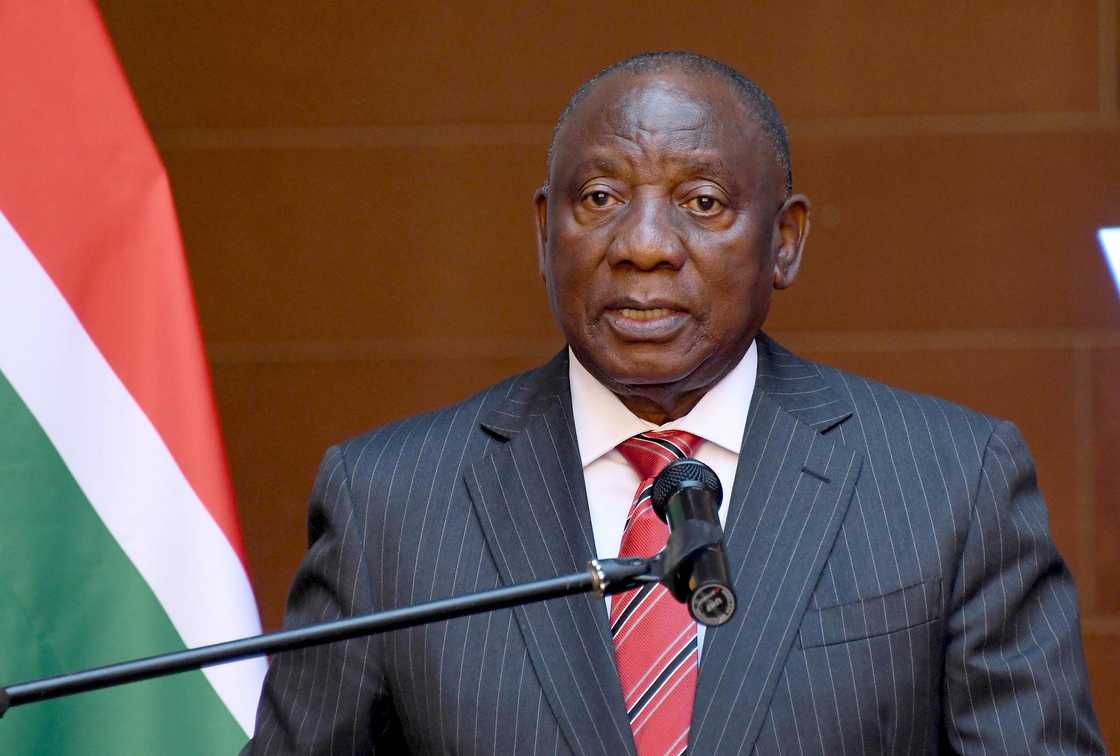
Source: Twitter
Ramaphosa said the government aimed to achieve significant economic growth and would undertake massive new infrastructure investment while upgrading and maintaining existing infrastructure.
"We're engaging local and international financial institutions and investors to unlock R100 billion in infrastructure financing. The government has launched a project preparation bid window to fast-track investment readiness.
"[The] government will spend more than R940 billion on infrastructure over the next three years, including R375 billion by state-owned companies. This will revitalise roads and bridges, enable us to build dams, modernise ports and airports and accelerate our economy."
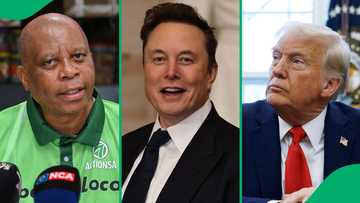
Read also
Herman Mashaba joins Donald Trump chat as he tears into Elon Musk: "The truth will always triumph"
Ramaphosa noted several blended finance projects, which the government approved last year, worth nearly R38 billion.
He said the Mtentu Bridge's construction, which will rise above the river between Port Edward and Lusikisiki, making it the tallest bridge in Africa, among other infrastructure projects, continued.
Ramaphosa doffed his hat to Eskom's run in staving off load shedding.
"The measures implemented through the Energy Action Plan have reduced the severity and frequency of load shedding, with more than 300 days without load shedding since March 2024.
"We remain on a positive trajectory [despite] the recent return of load shedding for two days; a reminder that our energy supply is still constrained.
"We must put the risk of load shedding behind us by reforming our energy system to ensure long-term energy security.
"The Electricity Regulation Amendment Act, which came into effect on 1 January, is a game-changer that will ensure this.
"We'll put in place the building blocks of a competitive electricity market, which, over time, will allow for the emergence of multiple electricity generation entities."
A notable issue in different parts of the country, including in Johannesburg, has been a water shortage caused partly by aged infrastructure.
"An urgent priority is to ensure a secure and reliable water supply. Many people in our cities, towns and villages are experiencing more and more frequent water shortages resulting from failed water infrastructure," noted Ramaphosa.
"It's impossible to live without water and the economy can't grow without it. Therefore, we're taking decisive actions to resolve the crisis [and] are investing heavily in expanding our water resources.
"The Infrastructure Fund has to date secured R23 billion for seven large water infrastructure projects. Within the next year, we will complete the establishment of the National Water Resource Infrastructure Agency to unlock much greater investment in water projects.
"Through the Water Services Amendment Bill, we will introduce a licensing system for water service providers and remove licenses where providers do not meet the standards for quality drinking water."
Other items high on the government's reform agenda were enhancing the visa system, empowering Black people, women and persons with disabilities, and setting up a transformation fund worth R20 billion a year over the next five years to fund black-owned and small business enterprises.
Through the National Skills Fund Disabilities Programme, launched in November last year, the initiative aimed to empower over 10,000 persons with disabilities through tailored training programmes and stipends.
SA's youth unemployment rate was under continued scrutiny in the third quarter of 2024, with 45.5% of people aged 15 to 34 unemployed.
Ramaphosa said the National Pathway Management Network availed as many as 235,000 work opportunities that year.
According to him, digital services and business process outsourcing have been a conduit for job creation for young people.
"We're investing in skills development for future industries to support this growth. The Jobs Boost fund has pioneered a new model that links funding for skills in demand to successful placement and employment.
"We're expanding our support for small and medium enterprises and the informal economy. This includes streamlining funding for small businesses, unlocking venture capital for high-growth start-ups, and developing a regulatory environment that enables informal enterprises.
"The Department of Science, Technology and Innovation will establish an Innovation Fund to provide venture capital to tech start-ups that emerge from our higher education institutions."
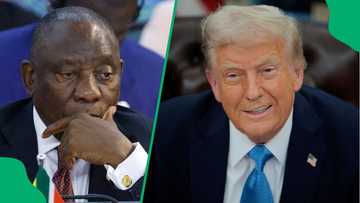
Read also
Trump cuts all US funding to SA amid land expropriation fracas, Ramaphosa hits back in sharp riposte
Profs laud R940bn infrastructure investment
In more SONA news, Briefly News reported that Ramaphosa revealed the government planned to spend R940 billion on infrastructure.
Earmarked over the next five years, he also said the government was working to secure R100 billion in infrastructure spending.
Briefly News spoke exclusively to University of South Africa (UNISA) political analysts Prof Dirk Kotze and Prof Mlungisi Phakathi about the ambitious infrastructure investment.
PAY ATTENTION: Follow Briefly News on Twitter and never miss the hottest topics! Find us at @brieflyza!
Source: Briefly News

